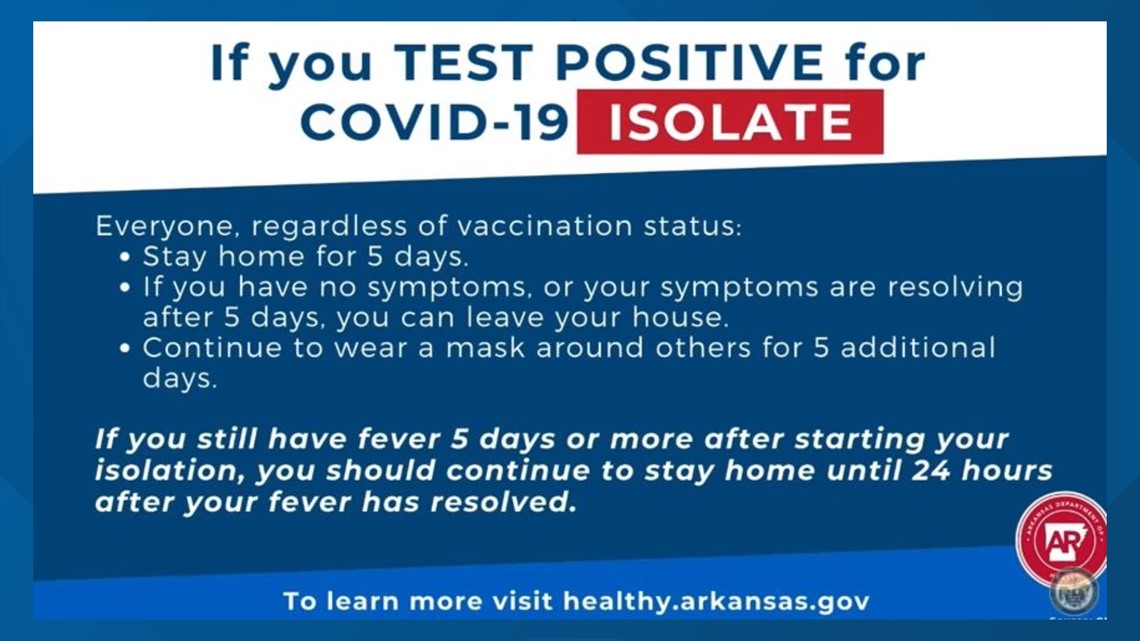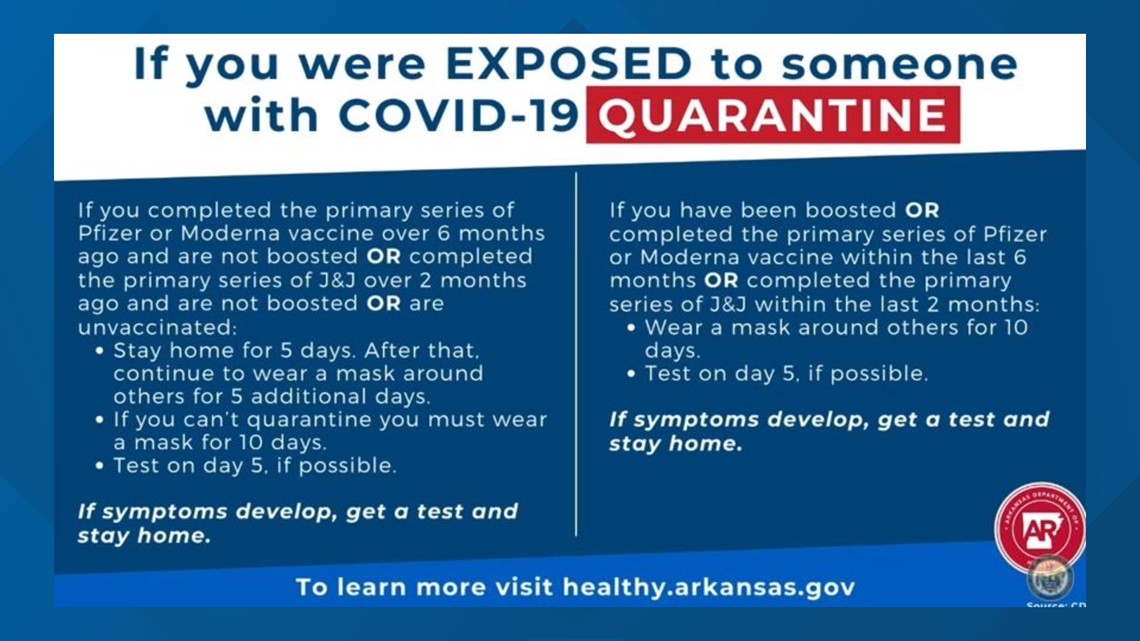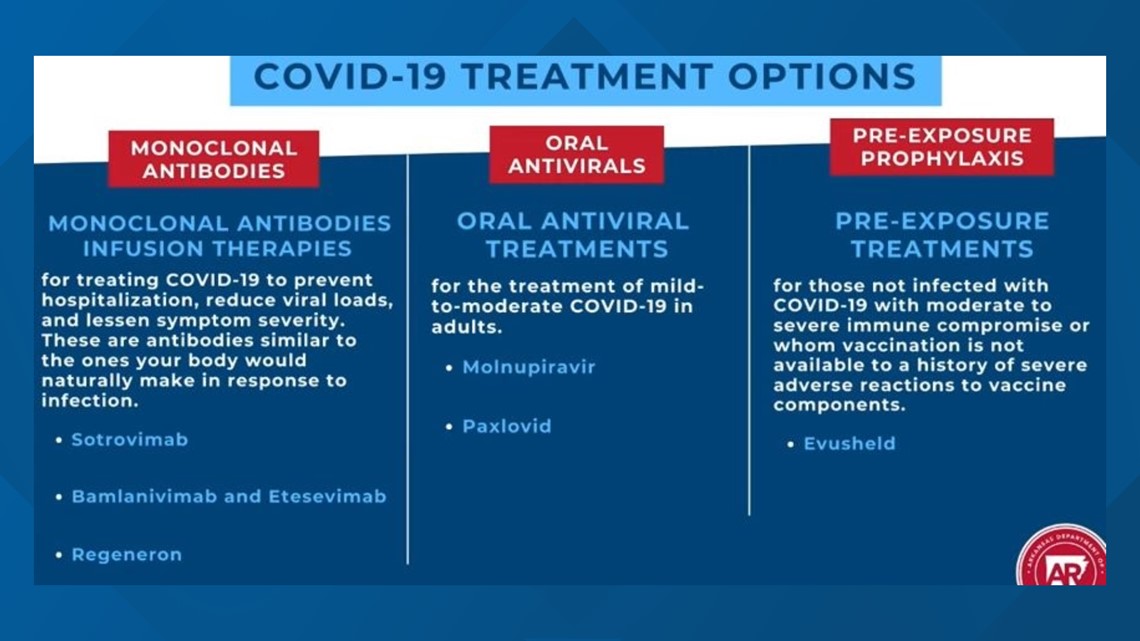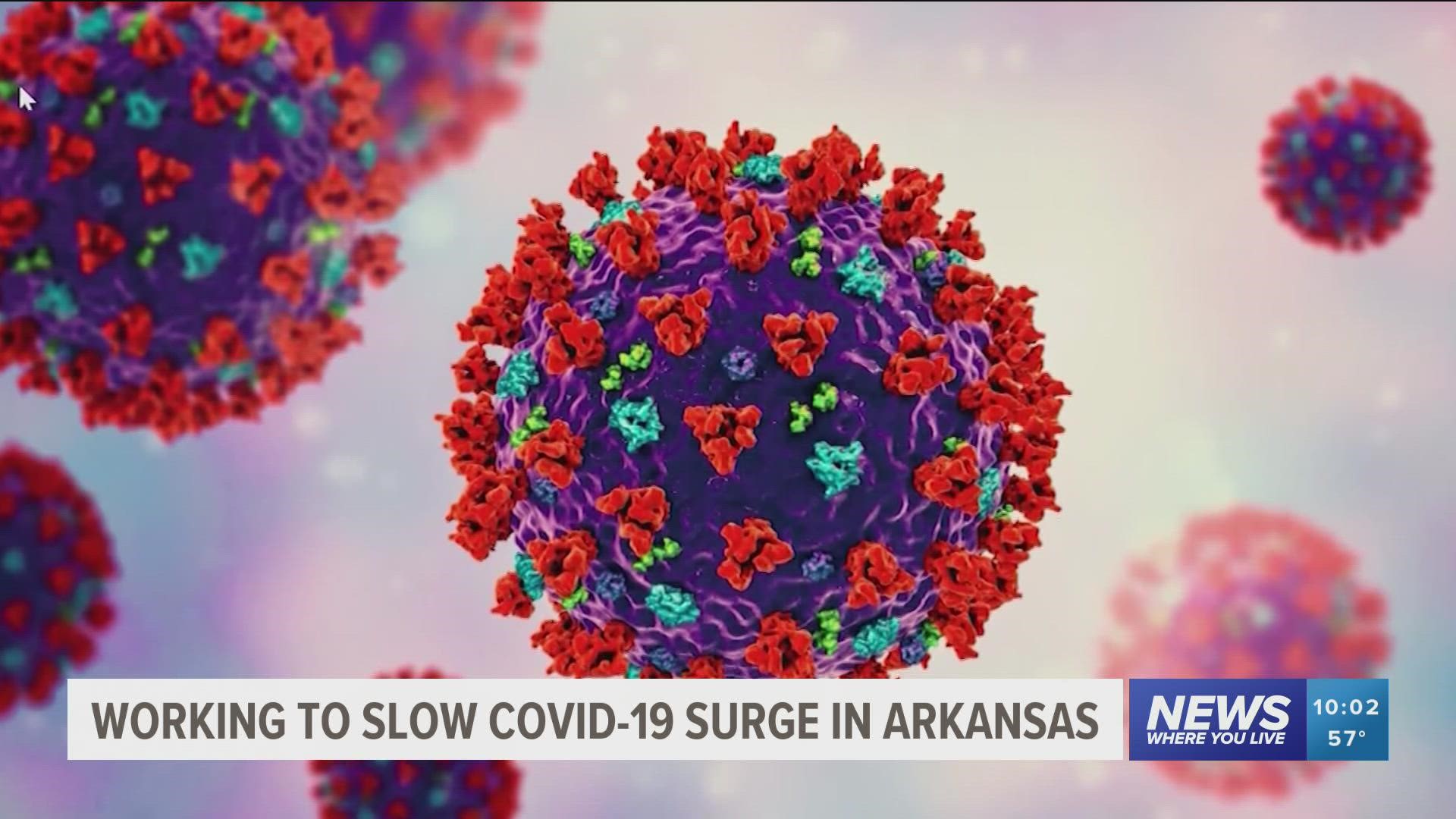ARKANSAS, USA — At his weekly news conference Thursday, Dec. 30, Gov. Asa Hutchinson addressed several topics including the spike in COVID-19 cases, the current demand for at-home rapid tests, new CDC isolation guidelines, and the short supply of monoclonal antibodies in the state.
Daily COVID-19 numbers:
Hutchinson announced Thursday that the state has reported the highest number of new COVID-19 cases in one day since the beginning of the pandemic.
4,978 COVID-19 cases were reported in Arkansas on Thursday, totaling 562,529 since the beginning of the pandemic. 10,500 PCR tests and 3,527 antigen tests were given to determine the number of new cases.
"I'm puzzled by the fact with the emerging omicron variant why that has not gone up more," said Gov. Hutchinson, speaking about low vaccination rates.
The top five days in Arkansas for COVID cases since the pandemic began are as followed:
- Dec. 30, 2021: 4,978
- Jan 1, 2021: 4,304
- Jan. 5, 2021: 4,107
- Dec. 29, 2021: 3,743
- Jan. 6, 2021: 3,705
Hutchinson also stated the state's positivity rate is 19.7%, the highest since the beginning of the pandemic.
At-home rapid COVID-19 tests:
To proactively address the testing needs in Arkansas, the state is working to procure 1.5 million at-home COVID-19 testing kits. These kits will be distributed to all local health units and some county public libraries to be given to Arkansans for free.
The governor is deploying 10 National Guardsmen to help distribute the tests.
"Clearly the demand has increased because of omicron. Because of the risk that's out there and the rapid rise in cases as well," Hutchinson said.
The tests could cost around $10 million but will be covered by the COVID response budget. The initial shipment of tests should be estimated on population per capita, but there's no guarantee that supplies will last because of the high demand.
Hutchinson says the state is trying to take local hospitals "out of the equation" with the at-home tests. He says the rapid tests are not as accurate as a PCR test and can have false negatives, but are still useful and is considered a highly reliable tool to have.
When asked if Arkansans should report their COVID-19 tests to the health department, Hutchinson if you show positive on an at-home test, call your doctor, isolate, and follow CDC guidelines, then wear a mask after that. The state is not asking to report the data to the Department of Health. It will only be reported if the person is hospitalized.
"If we can utilize our rapid tests in a more efficient manner across the state then that will be a benefit in early detection, early action and also relieving some of the burdens on our health care workers," Hutchinson said.
CDC guidelines for COVID-19 exposure
The CDC has released new guidelines for those who have tested positive for COVID-19 or have been exposed to someone with the virus.
Regardless of vaccination status, the CDC recommends the following guidelines if you test positive for the virus:
- Stay home for five days
- If you have no symptoms, or your symptoms are resolving after five days, you can leave your house
- Continue to wear a mask around others for five additional days
- If you still have a fever five or more days after starting isolation, you should continue to stay home until 24 hours after your fever has resolved


CDC recommendations for those exposed to someone with COVID-19:


Dr. Jose Romero and the Arkansas Department of Health (ADH) recommend the following treatments:


Hutchinson says Arkansas is at the mercy of the federal government to ensure a healthy supply of monoclonal antibody treatment.
The federal government is in control of the entire supply and allocates it where they see fit. Arkansas is getting a level supply but it's still insufficient.
There are three types of monoclonal antibody treatments:
- Sotrovimab
- Bamlanivimad and Etesevimad
- Regenron
“Delta is no longer the predominant variant in our community, we are dealing with the omicron variant,” said Dr. Jose Romero.
Because omicron is the dominant variant, Romero suggests Arkansans get the Sotrovimab treatment. Saying it is the most effective treatment against omicron, while the others are more effective against delta.
Sotrovimab is said to help keep people out of the hospital, lower the severity of symptoms, and is effective against delta.
Both Pfizer and Merck’s antiviral pills are in the state. But they are in low supply in those as well.
The state is also recommending a pre-exposure treatment for immunocompromised individuals. However, it is only in certain areas of the state.
"This is a significant change that will allow our workers to get back to work quicker, with the right precautions, and allow us to do what is necessary in society," Hutchinson said.
Gov. Hutchinson addressed the upcoming New Year's Eve holiday and noted that he will be celebrating with friends who are vaccinated and recommends that others celebrating should do the same.
"I'm not canceling everything in life, but I'm also mindful of omicron," he said. "I encourage everyone to be around vaccinated people, if they aren't vaccinated everyone should wear a mask and they should socially distance."
Schools
Gov. Hutchinson said that Arkansas is committed to in-class instruction. He noted that it is important for students to pursue education for their future and their mental health.
He said that schools should do what each district thinks is important for the safety of the school environment. He said masks are an option depending on what the district decides.
"We are committed in Arkansas to in-classroom instruction,” Hutchinson said. “No, we're not stopping it. We're not changing course."
You can watch Gov. Hutchinson's full press conference from Thursday below.

